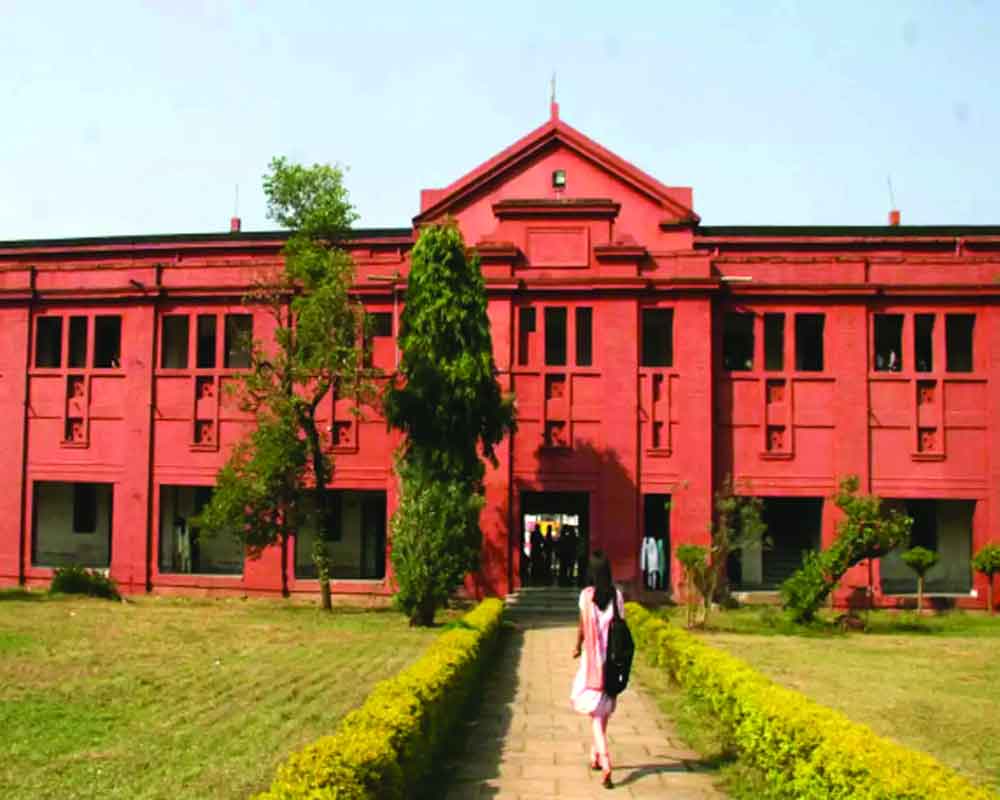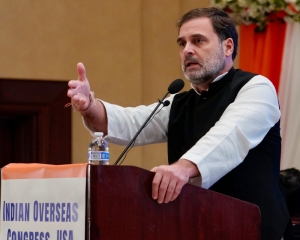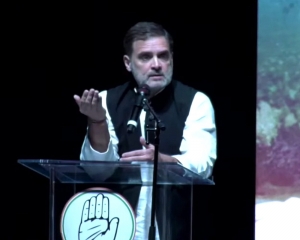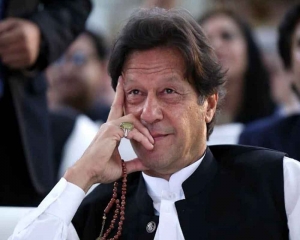While the move may appear symbolic, it reflects the Govt's broader aim to reclaim India's intellectual heritage by dismantling British-era frameworks
Union Education Minister Dharmendra Pradhan’s proposal to rename Ravenshaw University in Odisha has sparked a much broader discussion about India’s education system. Though the suggestion might seem symbolic on the surface, it indicates a larger governmental intent: reclaiming India’s educational heritage and aligning it with Bharat's civilisational knowledge. The renaming is part of a wider effort to challenge the enduring influence of British-established institutions and the colonial educational framework that has shaped the country for over a century.
The proposal is not without complexity. While a name change may grab headlines, the true challenge lies in the comprehensive realignment of India’s education system—a goal that can only be achieved through the implementation of the National Education Policy (NEP) 2020. The success of this shift hinges on integrating the Indian Knowledge System (IKS) into modern educational practices, ensuring that India’s rich intellectual heritage takes its rightful place at the core of the system.
Colonial Legacy in India’s Education: India’s education system continues to carry the imprint of its colonial past. British institutions like Ravenshaw University were not designed to foster intellectual growth or cultural preservation but to serve the Empire’s administrative needs. The British created educational institutions to produce clerks and bureaucrats who could operate within the colonial system. Unfortunately, this utilitarian approach to education persisted even after India gained independence. The leaders of the newly formed nation failed to envision an alternative model that could replace the colonial framework with a system aligned with India's civilisational goals.
As a result, the Indian education system has remained tethered to its colonial roots, prioritizing skills for a global market over intellectual, spiritual, or scientific growth. This narrow focus undermines India’s holistic knowledge traditions, reducing them to exercises in skill development rather than the broader pursuit of knowledge and self-reliance. The debate over renaming Ravenshaw University, therefore, becomes symbolic of a larger struggle: breaking free from the colonial mindset that continues to shape India’s educational and intellectual landscape.
The British Model: A Tool for Control: The British education system in India was never intended to develop the intellect or spirit of the Indian people. Instead, it was designed to produce a workforce literate in English and skilled enough to support the colonial administration. Lord Macaulay’s infamous education reforms focused on turning India’s vast and diverse traditional knowledge systems into utilitarian skills that could be exploited for colonial profit. As a result, India’s once-thriving intellectual and cultural traditions were marginalized, forced into obscurity to serve the needs of the British Empire.
Even decades after independence, the colonial model remains entrenched. India’s education system continues to prioritize skill development over fostering creativity, innovation, and intellectual growth. While skill development is undoubtedly important, the singular focus on it raises concerns about the broader vision and purpose of India’s educational objectives.
Moving Beyond Skill-Building: To truly break free from its colonial past, India must shift its focus from mere skill-building to fostering holistic individual growth. Education should nurture creativity, intellectual curiosity, and the inherent potential of every individual, paving the way for self-reliance. A system that prioritizes intellectual vibrancy over skill production will help India reclaim its rightful place as a leader in global thought and innovation.
The British colonial mindset has left a lasting impact on Indian society, one that is deeply embedded in the psyche of its educational institutions. The British aimed not only to advance their economic interests but to reshape the very thought processes of the Indian population. Their goal was to replace India’s ancient knowledge systems with Western paradigms, thus weakening the cultural and intellectual foundation of the nation. In this context, renaming institutions like Ravenshaw University becomes a step toward decolonizing the Indian mind.
A Forgotten Imperative: Decolonizing Indian Minds
The question arises: has India taken sufficient steps to decolonize its education system? The colonial indoctrination of Indian minds has lasted for generations, and its effects are still visible today. If India is serious about reclaiming its intellectual sovereignty, what concrete steps are being taken to dismantle the remnants of this colonial education system?
The ultimate goal should be to create an educational framework that aligns with India’s civilisational values and promotes intellectual independence.
(The author is an ICSSR-Post Doctoral Fellow, School of National Security Studies, Central University of Gujarat. The views expressed are personal)



















